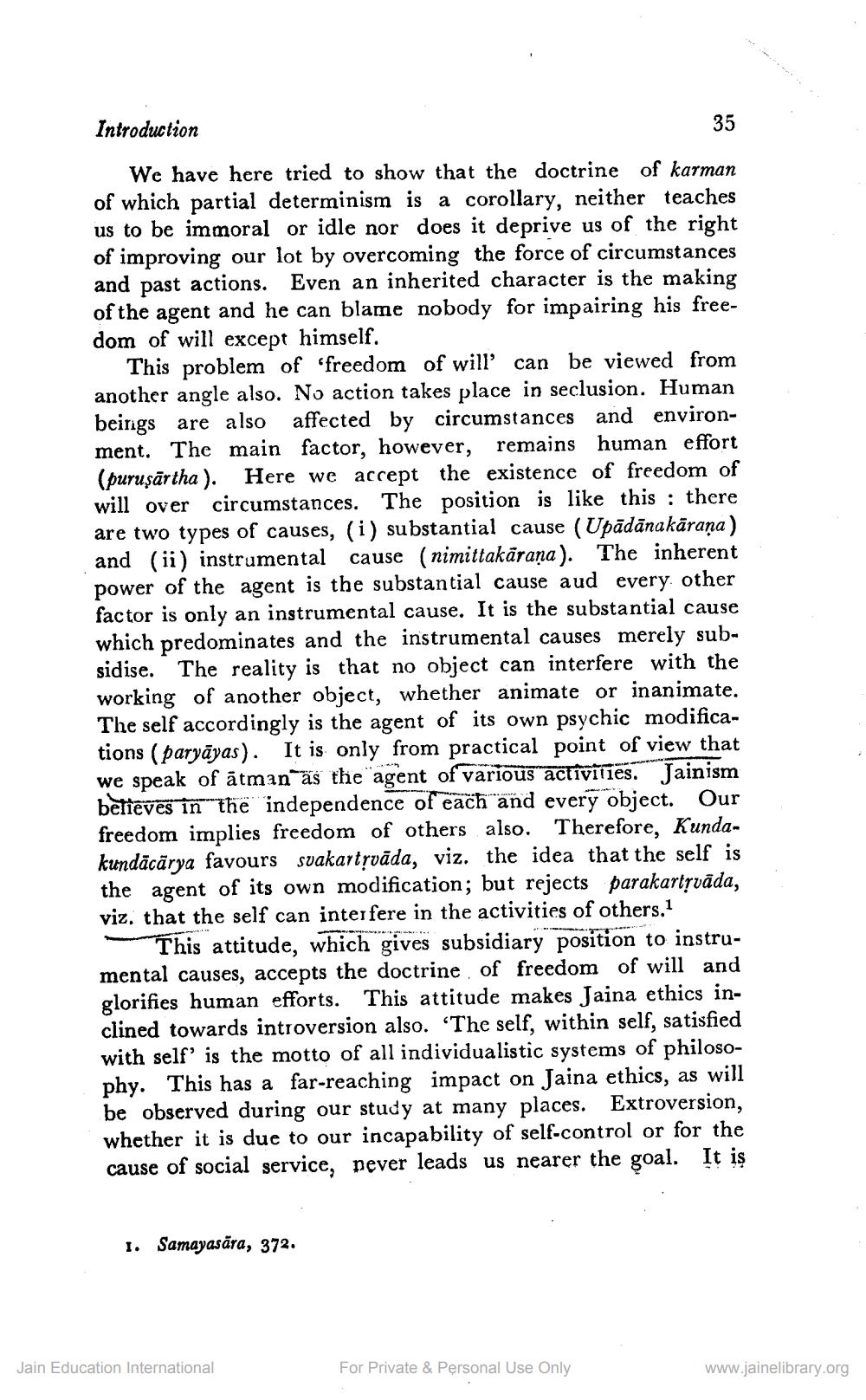________________
Introduction
35
We have here tried to show that the doctrine of karman of which partial determinism is a corollary, neither teaches us to be immoral or idle nor does it deprive us of the right of improving our lot by overcoming the force of circumstances and past actions. Even an inherited character is the making of the agent and he can blame nobody for impairing his freedom of will except himself.
This problem of 'freedom of will can be viewed from another angle also. No action takes place in seclusion. Human beings are also affected by circumstances and environment. The main factor, however, remains human effort (puruşārtha). Here we accept the existence of freedom of will over circumstances. The position is like this : there are two types of causes, (i) substantial cause (Upādānakärana) and (ii) instrumental cause (nimittakäraņa). The inherent power of the agent is the substantial cause aud every other factor is only an instrumental cause. It is the substantial cause which predominates and the instrumental causes merely subsidise. The reality is that no object can interfere with the working of another object, whether animate or inanimate. The self accordingly is the agent of its own psychic modifications (paryāyas). It is only from practical point of view that we speak of ātman as the agent of various activities. Jainism believes in the independence of each and every object. Our freedom implies freedom of others also. Therefore, Kundakundācārya favours svakartvāda, viz. the idea that the self is the agent of its own modification; but rejects parakartyvāda, viz. that the self can interfere in the activities of others.
This attitude, which gives subsidiary position to instrumental causes, accepts the doctrine of freedom of will and glorifies human efforts. This attitude makes Jaina ethics inclined towards introversion also. “The self, within self, satisfied with self' is the motto of all individualistic systems of philosophy. This has a far-reaching impact on Jaina ethics, as will be observed during our study at many places. Extroversion, whether it is due to our incapability of self-control or for the cause of social service, never leads us nearer the goal. It is
1. Samayasāra, 372.
Jain Education International
For Private & Personal Use Only
www.jainelibrary.org




